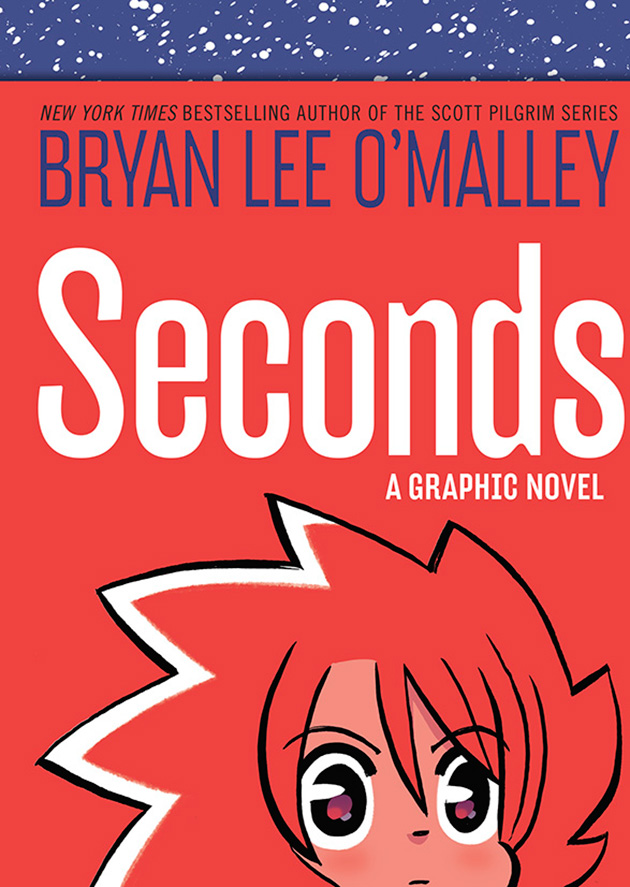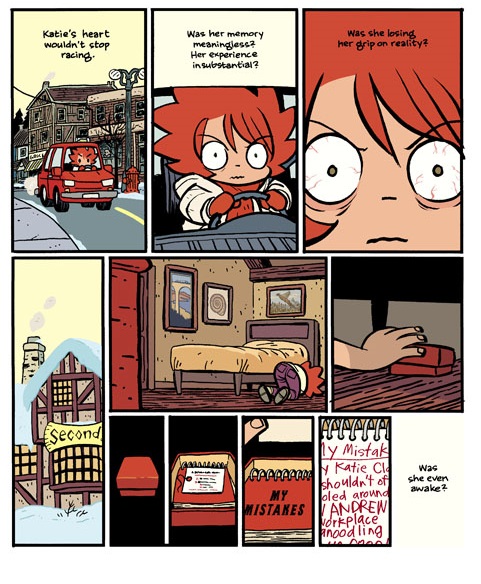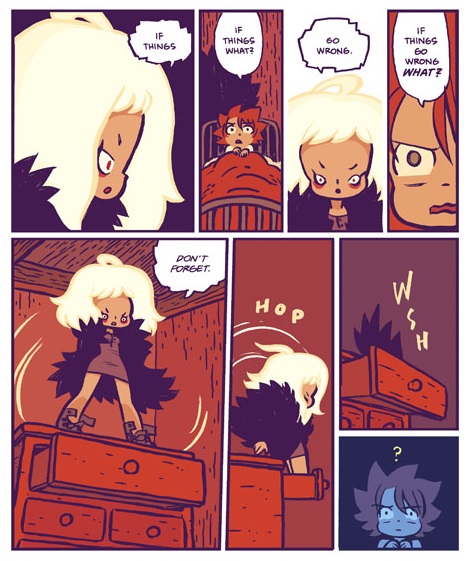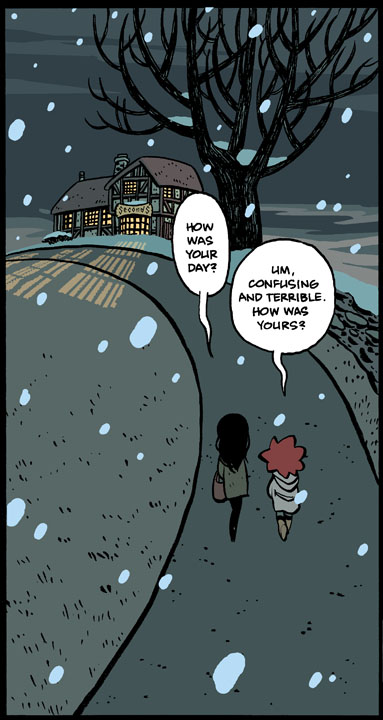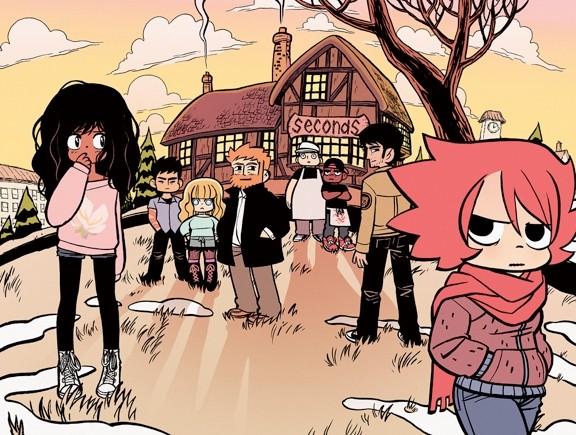There’s a moment in Bryan Lee O’Malley’s new graphic novel Seconds, a fleeting gag really, that calls back to a particularly beloved line from his Scott Pilgrim series. Perhaps it was designed, like some background cameos from Scott and Ramona, as a friendly shout out to longtime fans, but it only served to take me out of this wonderful, new world O’Malley has crafted. Scott Pilgrim was indisputably great, but Seconds is a completely different beast, and for that we should all be grateful. I had some concerns the new book would mine similarly geeky territory when I read that the premise involved magic mushrooms that offer second chances (some sort of convoluted Mario reference?), but instead, I was treated to a poignant, Miyazaki-influenced fairy tale that resonates uncomfortably with anyone inhabiting their late 20s.
Seconds chronicles the exploits of 29-year-old Katie, a chef who runs a restaurant called “Seconds.” Or she used to. Now she just loiters around the place, leeching off its energy to stroke her ego as she struggles to open a new restaurant, one she can call her own. She also lives in a small apartment above Seconds, her life inexorably tied to this building. Stuck in this purgatory between her old life and the hypothetical shiny new one, Katie grapples with regret, from the smaller, day to day mistakes all human beings make, to the larger, destiny shifting decisions of her past. The aforementioned magical mushrooms provide the central conceit of the narrative. Katie finds them, along with a notepad and instructions. You write down your mistake, eat the mushroom, go to sleep and wake up anew.
It’s the “anew” part that leads to complications, as Katie starts altering her own reality by “fixing” these mistakes. Things eventually spiral out of control as she ignores the rules of the mushrooms, coming into conflict with Lis, the house spirit of Seconds who seemingly lives in Katie’s dresser, a petite, young girl draped in hobo hipster chic. What follows is an engrossing tale that calls to mind Groundhog Day (and similar “do over” concept films) as well as the output of Studio Ghibli.
The elemental nature of the story, ancient spirits and magic and world tree imagery, is beautifully drawn, transforming a slice of life, twentysomething piece of indie drama into something more classical and timeless. References to Twitter and smartphones become sharp, timely edges rounded into smooth curves by O’Malley’s ability to distill a specific, personal crisis into a larger, compelling morality play.
Ultimately, that’s what made Scott Pilgrim so successful. It wasn’t the fighting and the video game culture accoutrement, but his ability to take a straightforward slacker yarn and play it out on a grander, more exciting stage. Here, Katie’s story, a young chef who yearns for perfection, could easily be written as a shitty Katherine Heigl movie, but instead, Seconds is a clever, mournful, moving cautionary tale about accepting your mistakes and extolling the virtues of patience and moderation. The storytelling style feels very storybook, with the deceptively simple prose of the narration (often interacting humorously with Katie herself) and the use of full page splashes juxtaposed against one another to quickly deliver exposition in the book’s first act. Tone wise, it seems a happy medium between the wry, Dear Diary confessional of O’Malley’s Lost At Sea and the biting, too close to home realism of the later Scott Pilgrim books.
Remember that moment in Scott Pilgrim Vs. The World where Scott is trying to explain complicated X-Men continuity to Ramona while she’s trying on clothes and she is mentally elsewhere, and how it encapsulated their entire relationship at that point? Seconds‘ best moments work on that level. There’s a playful sense of humor masking deeper, more painful truths throughout the book. When we first meet Katie, we relate to her frustrations and are charmed by her foibles, but as her supporting cast is filled in–her ex-boyfriend Max, her chef successor/boy toy Andrew, her new friend Hazel–we see how her failings affect others and see in her misgivings our own weaknesses.
Through Katie’s supernatural quest to delete her every fuck-up, every awkward misspeak, every disastrous choice, O’Malley puts Gen-Y on blast, skewering the late twentysomething condition and our obsession with being further along than we are without any of the hard work. By altering your life and removing the mistakes, you prolong the most important part of living: the learning. With no cause and effect, Katie’s life becomes a tangled mess of aborted timelines, none bringing her closer to the elusive perfection she so desires, because the core element that causes the need for these reboots remains: Katie herself.
Another reason Seconds feels like such a special book is the team O’Malley’s put together for it. Dustin Harbin’s lettering first struck me on Matt Fraction’s Casanova and his work is equally exemplary here. Hopefully you’ve already read our interview with Nathan Fairbairn, whose lush color art gives the book a vibrance and majesty that black and white just wouldn’t have been able to convey.
Seconds proves there’s life after a career-defining work, and that there are a lot more stories left in Bryan Lee O’Malley. With fully realized characters, some sumptuous art, and a important lesson to be learned from the smartly crafted plot, it’s easily one of the best graphic novels of the year.
Seconds is available now from Random House.

